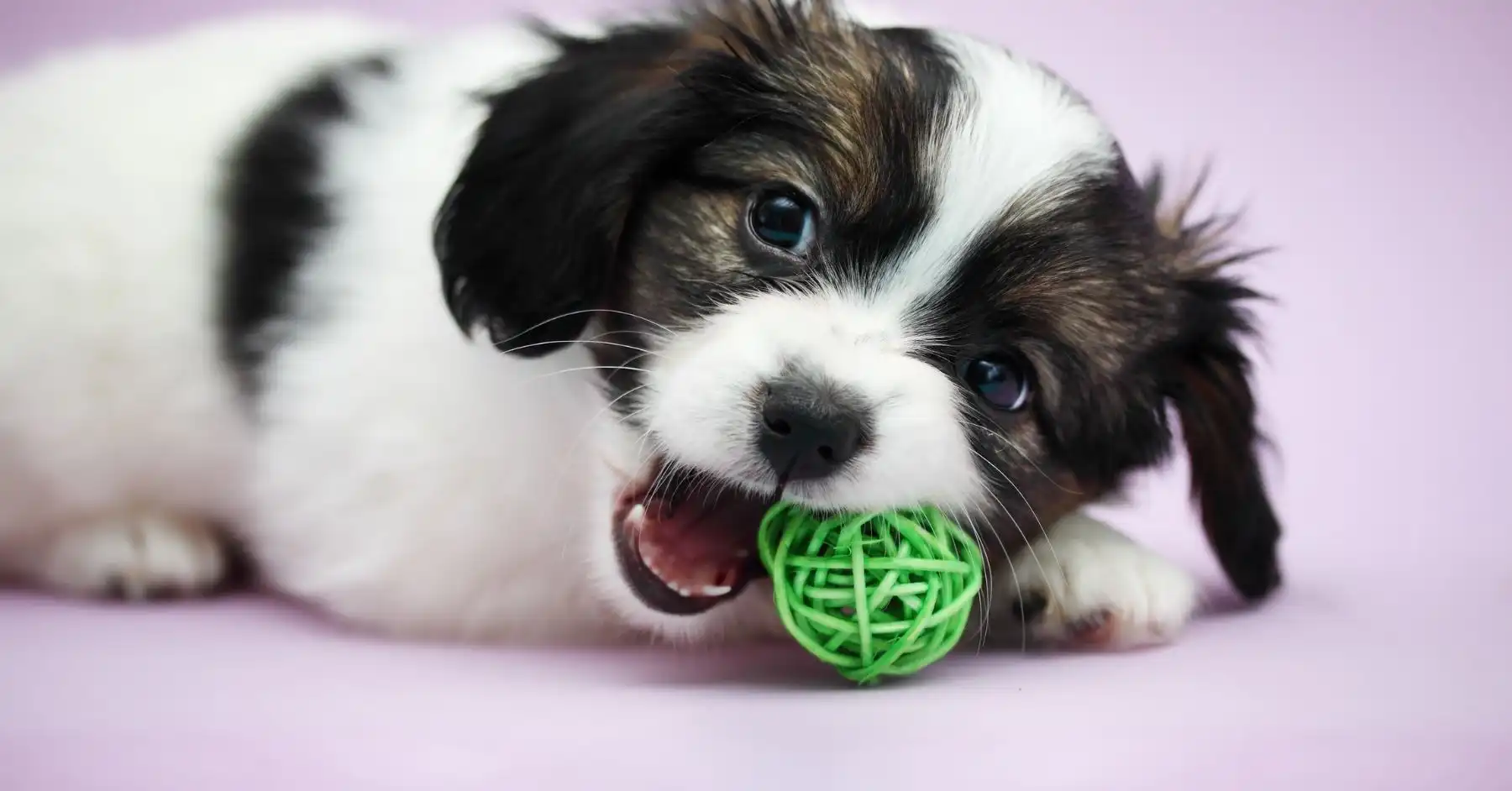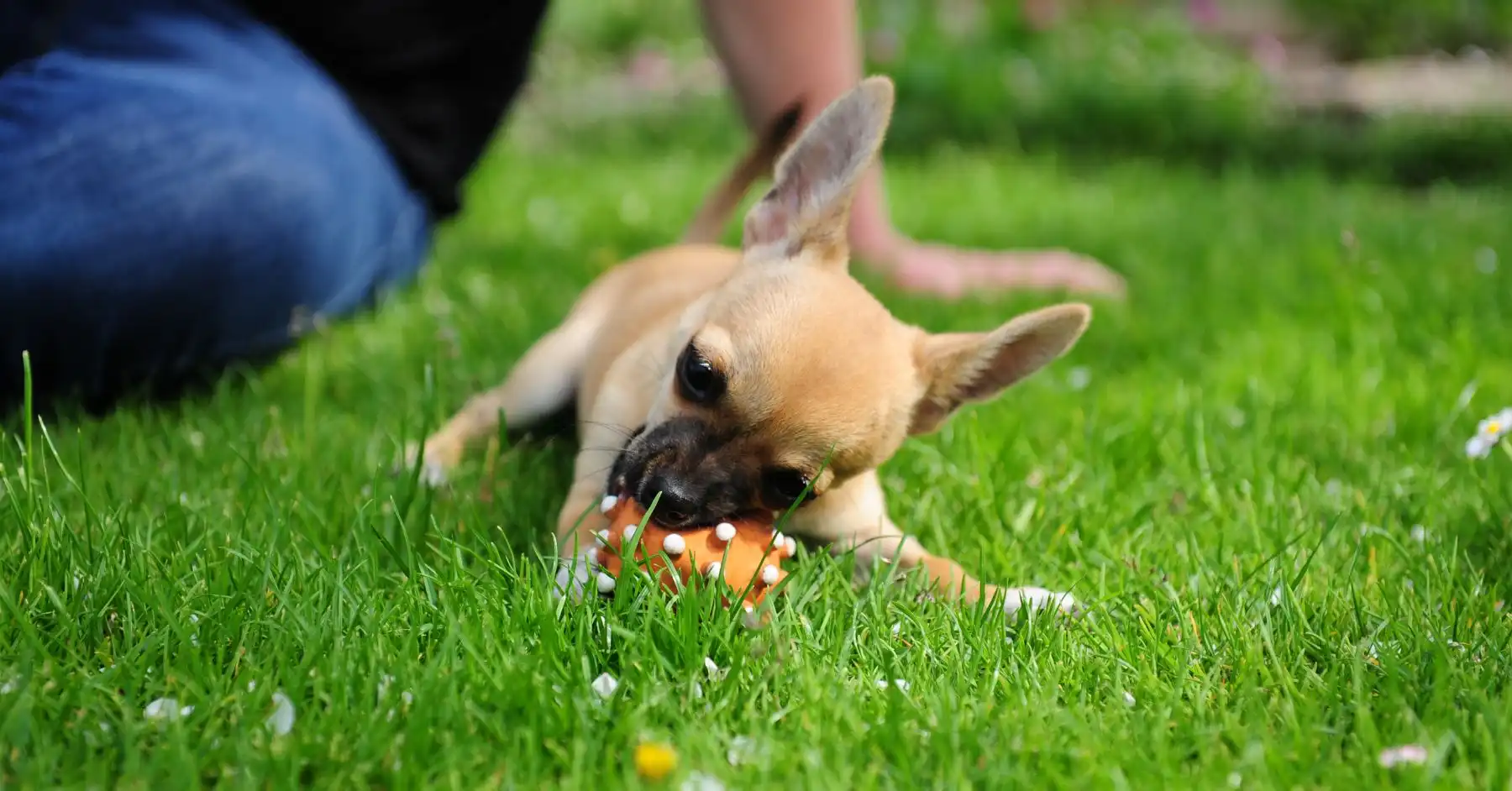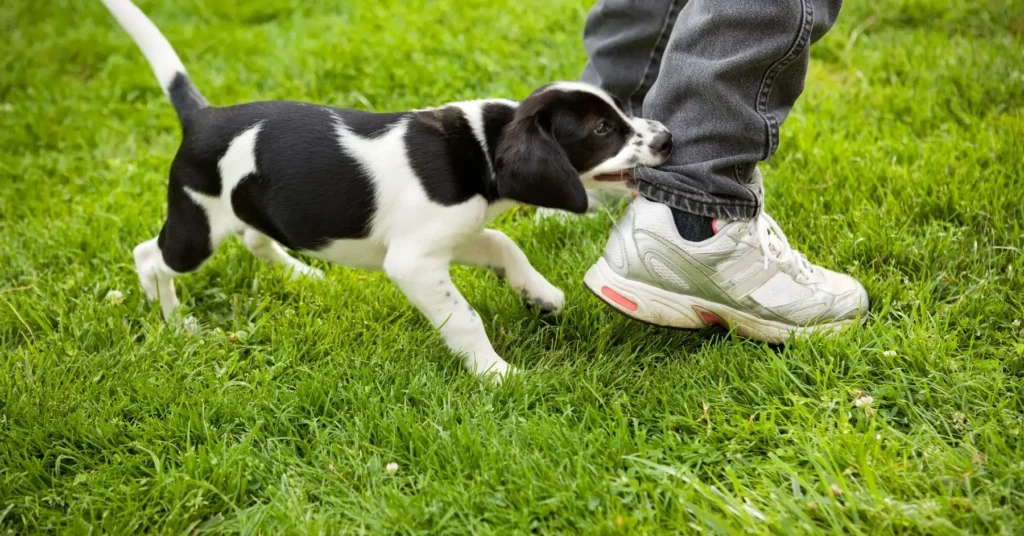Puppies are cute, but they can also be very destructive. They’re puppies for a reason—they’re still learning how to be dogs and need lots of exercise and playtime to develop their personalities. But all that playtime doesn’t mean your puppy won’t bite! In fact, if left unchecked, biting can become a serious issue in many households because it’s both dangerous and uncomfortable for owners.
Understand why your puppy is biting
It’s important to understand why your puppy is biting. Your pup may be biting because he’s trying to explore his environment and discover what it feels like because he wants to play with you, or because he wants the attention of another person in the room (like a cat).
If you notice that your puppy is biting more than usual, especially when you’re holding him or someone else holds him, this could be an indication of dominance. Dogs will bite each other during play so that they can establish who does what role in their hierarchy—and this could lead them into dangerous territory if not handled properly! It’s also important to know whether a dog has been around dogs before; if so then there would probably be some sort of negative association between humans and animals which could cause some sort of trauma leading up to aggressive behavior towards those same people later on down the line…
Keep your puppy entertained so they’re less likely to bite
If you want your pup to stop biting, it’s important that they’re kept busy. Dogs need exercise and playtime in order to be happy and healthy. Puppies are especially prone to boredom while they’re growing up, so make sure you have enough toys and treats on hand for them when the time comes!
If your dog is biting because he or she is bored or lacks stimulation (like an owner who isn’t playing with him), there are plenty of ways you can keep him/her occupied:
- Use toys like tug-of-war ropes or Kongs filled with treats. These can be used indoors as well as outdoors; just make sure not to put any heavy objects near the perimeter of where your puppy plays so that if one gets away from them during playtime they won’t get hurt by falling objects crashing down onto their heads 🙂

Prevent play biting by not playing rough with your puppy
Play biting is a normal behavior in puppies, and it’s important to realize that this type of play can be a way for your puppy to learn about the world around them. Puppies are often curious about their surroundings and will often bite at anything they find interesting. This may include other dogs, people, or even toys! If you’re concerned about this behavior then there are several steps you can take:
- Take time every day with your puppy so he knows how much fun it is being around you (and vice versa). You should also make sure that all members of the family interact positively with each other as well as with their pet during these interactions—if not done correctly then bad things could happen!
- Be sure not to play rough during these interactions because this will only lead him down an unsafe path where he’ll eventually bite someone who comes near him unexpectedly
Redirect and stop problematic biting behavior when it happens
If you’re dealing with a puppy that bites, it’s important to start by redirecting their behavior. To do this, say “no” firmly when your dog lunges at you or someone else in the family. If they still continue to bite after being told no and sprayed with water from a squirt bottle, try praising them for stopping their biting when they do so instead of scolding them for being aggressive toward others or themselves.
When your puppy is biting someone else (or even just yourself), make sure that person knows how much pain they are causing the dog by putting pressure on its muzzle while holding up two fingers—this will help distract the animal from biting anyone but itself!

Teach your puppy what to do instead of biting you
If your puppy bites you and you want to stop the behavior, teach him what to do instead of bite. This is a good way for both of you because when your puppy learns these new behaviors, he’ll be less likely to bite again in the future.
- Teach your puppy how to sit – When a dog sits, he can be distracted from biting by something else like food or toys nearby. If your pup doesn’t know how yet (or if he doesn’t want), try teaching him this classic canine pose!
- Teach your dog how not-to-bite – In addition to sitting down as often as possible when it’s appropriate (like at dinner time), teach him how not-to-bite using treats and toys that are safe for humans but still yummy enough for dogs!
Reward positive behavior with praise treats or toys
When you reward your puppy for good behavior, make sure it’s the right thing. Don’t use food as a reward if your puppy is overweight and/or has food allergies.
If you’re working with a puppy who bites and won’t stop, try rewarding positive behavior with praise and treats or toys instead of food.
Puppies bite because they’re frustrated. Puppies can’t communicate with us in the same ways that we communicate with one another, so they use their mouths to get our attention when they want something. This could be anything from asking for food or water to eliminating in the wrong place or chewing on something inappropriate (like your favorite shoes). If you think about it, this is actually pretty amazing if you’re working with a puppy who bites and won’t stop, try rewarding positive behavior with praise and treats or toys instead of food.!
Puppies can be very cute, but they WILL bite if you don’t teach them not to!
Puppies can be very cute, but they WILL bite if you don’t teach them not to!
Puppies bite because they are teething. This is the time when a puppy’s teeth grow in, so he has no choice but to chew on things until his adult teeth come in. It’s important that your puppy learns how to interact with people and other animals safely before he gets too big and strong for you. If you don’t do this exercise early on, it may never happen at all!
Puppies bite because they’re learning how things work around here (and we want them to do what we want). A little puppy chooses his first object of attack based on instinctual behavior: He might choose something soft like your hand or sweater because it feels good against his mouth when he bites down hard – hence why some people say puppies “nibble” instead of “bite”! Some puppies also prefer toys over people—so keep an eye out for any favorites lying around the house so that everyone gets enough attention from their favorite toy in those early months when everything else seems overwhelming (and confusing!).
Conclusion
Puppies are cute, but they can also be very scary if they bite you. If you don’t teach your puppy not to bite, they will do it again and again until you stop them! Luckily, there are some things that we’ve learned about raising puppies over the years that can help you keep your puppy from biting.
